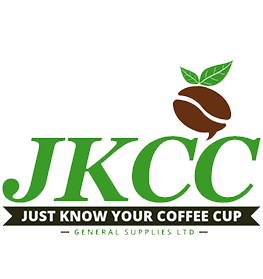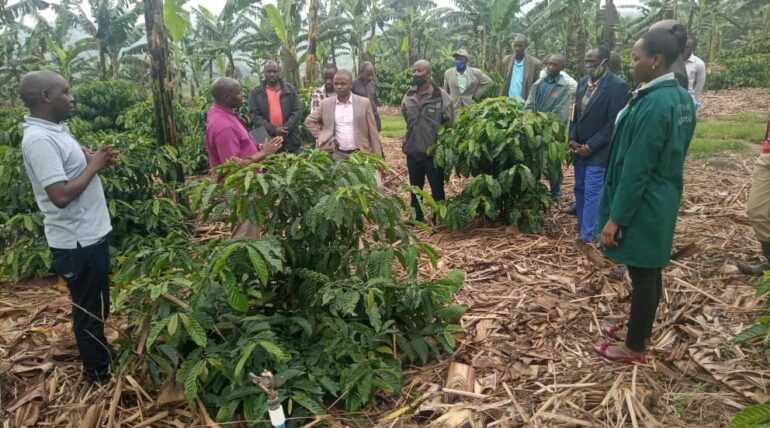Uganda is the largest coffee exporters in Africa and coffee is its most important export commodity yet the coffee farmers are the poorest. JKCC having the core objective of increasing production and productivity and eradicate poverty amongst traditional smallholder coffee farmers. Ultimately, Uganda intends to increase the overall coffee production from 5 million bags to date, to 20 million bags by 2030.
Over the weekend, the team from JKCC took the gospel to the South Ankole Diocese who happen to be farmers in the same field. Led by Bishop Nathan Ahimbisibwe, the brethren were impressed by JKCC’s move to train the religious coffee farmers on the basics of farming, post-harvest handling methods financial literacy, record keeping among others that would in turn yield best fruits.

“When you lack someone to inspire you, you soon expire. That’s why we welcome the team from JKCC to inspire us on the coffee production and productivity” Said Bishop Ahimbisibwe.
He appreciated the work being done by JKCC and pledged to hold a one-day convention where more coffee farmers will be invited to learn more from the JKCC team.
The JKCC team proceeded to Bushenyi in Ishaka Municipality where they met another cluster of youthful coffee farmers. JKCC urged farmers to endeavor to meet the quality standards of coffee by avoiding adulterations and add value to the cash crop as this would fetch them good money.

Coffee production is viewed as one of the vehicles through which Uganda could attain a middle income economy status.
Research by Operation Wealth Creation in 2016 indicated that although coffee is one of the country’s leading export earners, its productivity has declined in South-western (SW) Uganda threatening the local economy and livelihoods.

This attributed to Poor agronomic practices, unpredictable climatic regimes, poor extension services, defunct coffee cooperatives, loss of soil fertility, loss of trust in farmer institutions, unclear seed sources, and late supply of seedlings.
The 2016 Research indicated that Coffee farmers have land sizes that are greater than the district but are under-utilized, resulting in low coffee yields.

